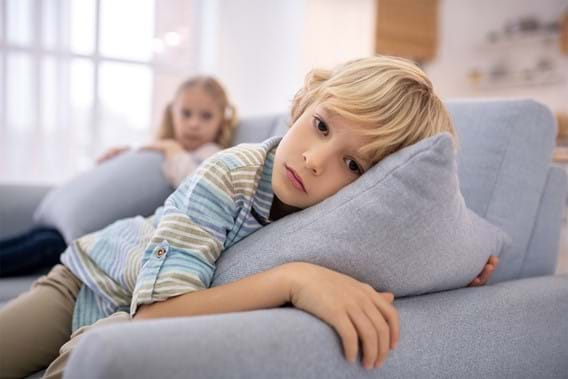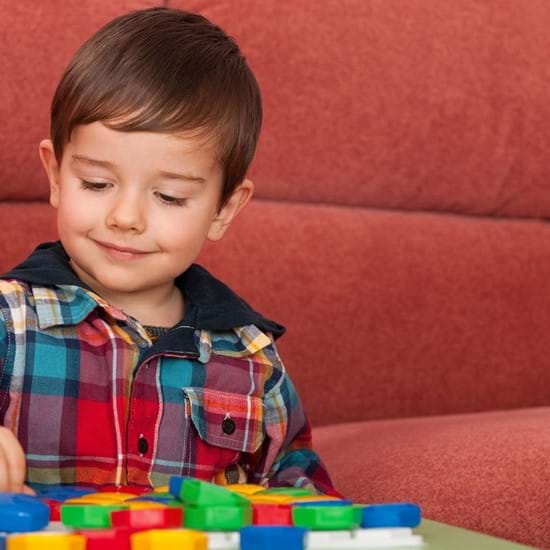
Children’s Mental Health

Written by: Nanny Secours
Mental health disorders affect not only teens and adults, but also children. And they can have an impact on a child’s overall functioning at home, at school, and in social and emotional relationships, and on their overall development. It is therefore increasingly common for parents to consult a mental health professional to reassure themselves and provide their child with adequate support.
While it can be difficult to get an appointment quickly, access to specialized mental health professionals is easier today than it was a few years ago. Mental health care for children has grown significantly, and research has led to the development of a variety of appropriate resources to prevent, screen, assess, and work with children in more specific ways. In Quebec, parents have access to a wider range of mental health services that can meet their child’s needs.
Mental disorders in children: Signs to look for
Depending on a child’s age, family background, and life history, certain signs may be associated with poor mental health. However, just because they show one of these signs, it doesn’t necessarily mean they have a mental health problem. Frequency and duration are good indicators of whether or not there is cause for concern. Here are some examples of signs to look for:
- Loss of interest in an activity they’re usually very interested in
- Avoidance of going out with family or friends
- Low energy
- Fatigue and difficulty sleeping
- Evidence of worry or anxiety
- Frequent mood swings
- Loss of appetite
- Sadness
- Temper tantrums
- Aggressive behavior toward others or themselves
- Difficulty concentrating
- Lack of interest in learning (hobbies or school)
- Repeated academic failure
It can be hard for a parent to determine whether or not it’s a mental health issue, given the age of their child. You can assume it’s just a phase. But will it resolve itself over time?
As mentioned earlier, parents who observe certain signs over a longer period of time may want to consult a professional. An example would be a child who is persistently sad or anxious. It could also be a reaction to a momentary emotional situation (death of a loved one, illness, a move, separation of the parents, arrival of a new spouse, birth of a child, conflict in the family or difficult social relationships with peers or siblings). It could also include unusual behavior such as aggression, defiance, impulsiveness, irritability, lower frustration tolerance, or difficulty sticking with challenges.
What should you do if you’re worried about your child’s psychological health?
If you’re worried about your child’s behavior and suspect they have mental health issues, you should:
- Talk to your child about your concerns and listen carefully to what they say. It’s important, however, to avoid confronting them or giving them the third degree.
- Refer to youth literature to discuss the subject with them (albums or novels that present a situation similar to that of your child).
- Make an appointment with your child’s family doctor to ensure there’s no physiological cause. The doctor can also refer you to other healthcare professionals.
- Ask school staff, including teachers, if they’ve seen any recent changes. They too will be able to support you or refer you to the right services.
In conclusion, whether you’re an adult or a child, taking care of both your mental and physical health is essential. And the best way to do that is to be informed, make adjustments, accept and help each other, etc. No matter how fragile your or your child’s mental health is, having the support of those around you (family, caregivers, friends, etc.) is essential to avoiding isolation and loneliness. So take care of yourself so you can help those you love, using tools such as the ones suggested below.
Do you have concerns? Feel free to see a child mental health specialist to get the support you need.
A few useful references to guide you through the process
- Your local CIUSSS
- Community organizations that support youth and families
- Tel-Jeunes
- Ordre des psychologues du Québec
- Association des médecins psychiatres du Québec
Suggested reading for parents
- Self-Esteem, A Passport for Life, Germain Duclos, Éditions du CHU Sainte-Justine
- Les troubles anxieux expliqués aux parents, Chantal Baron, Éditions du CHU Sainte-Justine
- J’ai mal à l’école, Marie-Claude Béliveau, Éditions du CHU Sainte-Justine
Suggested reading for children
- Le nuage, Claude K. Dubois, Publisher: Alice Jeunesse, Brussels
- What’s Going On Inside My Head?, Molly Potter, Featherstone
- Élisabeth a peur de l’échec, Danielle Moreau, Andrée Massé, Éditions Dominique et compagnie
- The Color Monster: A Story About Emotions, Anna Llenas, Little, Brown Books for Young Readers
- La tristesse de Mahée, Martine Latulippe, Stéphanie Mackay, and Nathalie Parent, Éditions Mammouth Rose
- “Ben entreprend” or “Le carnet de Julie” collection, Julie Gagnon, Éditions MD
Suggested games for children
- Mission: Emotions!, Placote collection
- Seek & Find: Emotions, Placote collection
- Act It Out!, Placote collection
Annie Martin
Bachelor’s degree in psychoeducation and DESS (advanced graduate diploma) in mental health
Member of Réseau Nanny secours


